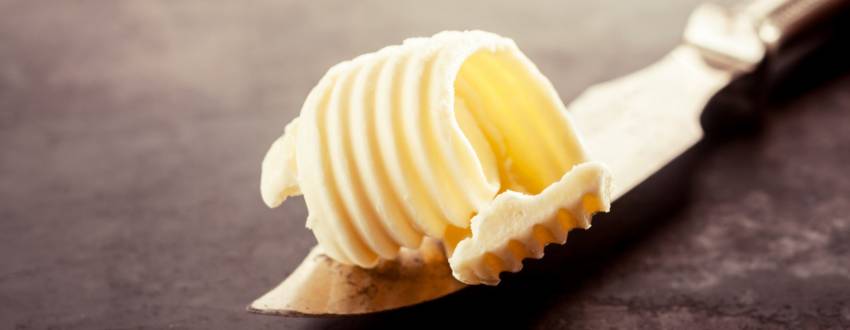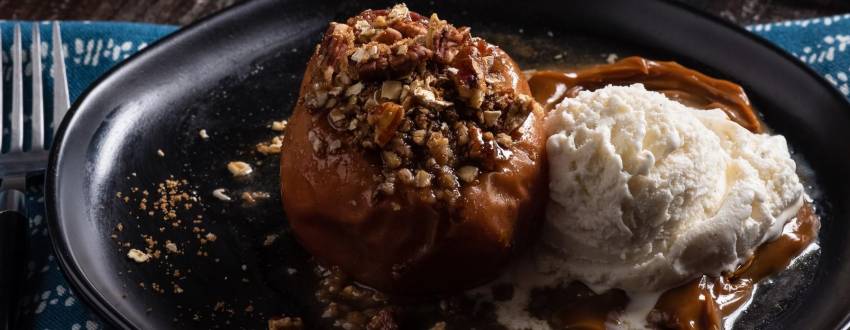It was my cousin Barry’s birthday and Mom had volunteered to make his favorite brownies. Schedules got a little hectic and we were baking them last-minute, just in time to realize we didn’t have any butter. Or margarine.
We also forgot to put time to go to the store on the grocery list last week. Oops.
“What about vegetable oil?” my sister suggested. She was 10 at the time, and at the wise old age of 12, I thought it would never work. In my mind, it was butter or bust!
Long story short, we used vegetable oil and it actually gave the brownies more of a moist texture that our cousin loved. Does this mean you can substitute butter for oil in any recipe?
Well, yes and no.
There’s an art and a science to substitution in recipes. In most cases you can substitute oil for butter or margarine fairly easily with a 1:1 ratio. For best results, always consider the type of oil you’re using and what purpose it serves in the recipe.
Stir-Fries, Soups, Eggs, and Fish- Substituting Oil for Butter in Cooking
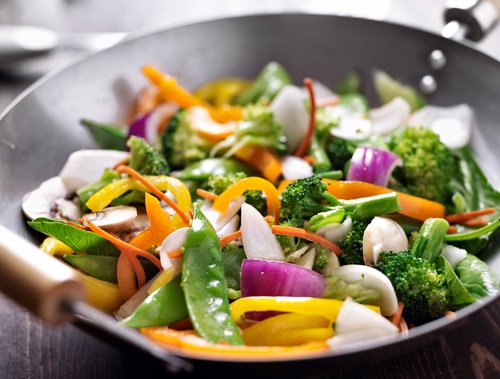
Fats serve many purposes in cooking. They keep food from sticking to surfaces, they transfer heat without overheating food, and they help absorb and preserve flavor. For most cooking purposes, such as sautéing vegetables, you can use oil, butter, and margarine interchangeably.
Most recipes recommend using oil for a stir fry or roasting vegetables, and you can use oil in a soup just the same as you would butter.
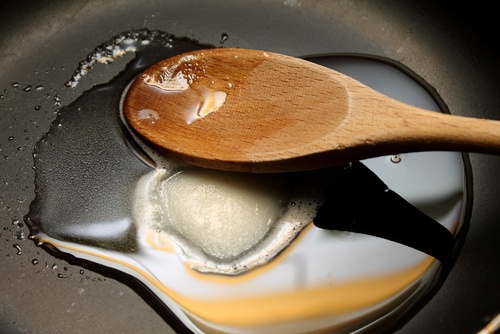
Flavor-wise, “neutral” oils are always a safe substitute for butter in any cooking recipe. Some common neutral oils include canola, soy, corn, grapeseed, and avocado. Olive oil is a safe bet with green herbs and anything savory. Sesame and peanut oils have distinct flavors that go really well with dark-colored spices and stir fries. Coconut oil tends to pair especially well with anything on the sweeter side, and its texture is similar to butter.
Just keep in mind that it generally takes slightly longer to heat oil than butter or margarine.
You also have to use more of it and get it really hot to ensure things like eggs cooked over easy don’t stick to surfaces. Same goes for fish, but when you’re working with delicate fish, such as flounder, tilapia, or sea bass, it’s best to use butter so that the fish will cook evenly.
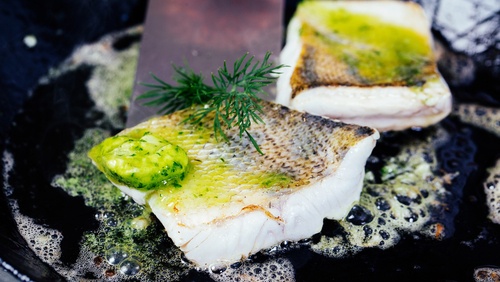
You might be tempted to use spray oils instead of butter, to lower the fat content of your meal. Since they don’t provide as much lubrication as butter or regular oil, make sure to watch the pan carefully for sticking and burning. Don’t ever spray oil onto a hot pan or anywhere near an open flame!
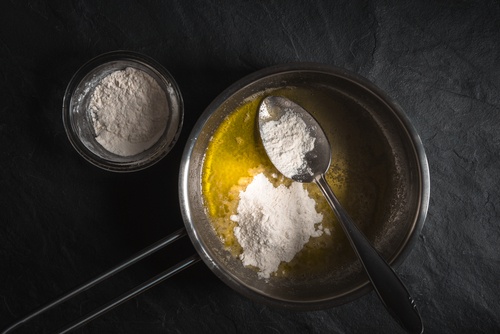
When it comes to making a roux, gravy, or sauce, you can use butter, oil, or animal fat interchangeably. Flavor-wise, neutral oils are always safe to use, but olive oil is usually not recommended. Schmaltz, or rendered chicken fat, is a classic substitute for butter in many savory dishes that has a very rich flavor and similar consistency to butter.
Crusts, Breads, Fudge, Icebox Cookies- Substituting Oil for Butter in Baking
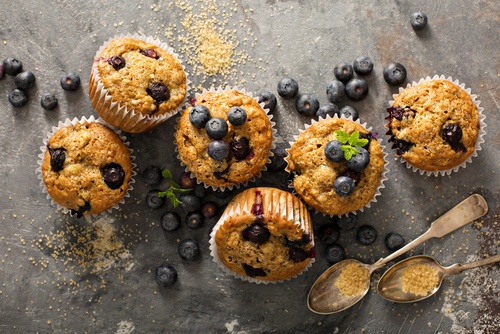
For baking purposes, substitutions can get slightly more complicated, but also fun to experiment with. If a recipe calls for melted butter, you can usually substitute three-fourths the amount of oil. When it comes to frostings and certain crusts, substituting butter can get tricky – but not impossible.
Butter is what gives baked goods their fluffy, airy, interiors. When dough heats in the oven, the molecules in the fat expand, which are what create pockets of air. Similarly, using oil in baking tenderizes breads and gives them a longer shelf life than butter would (some common breads that are traditionally made with oil include challah and bagels).
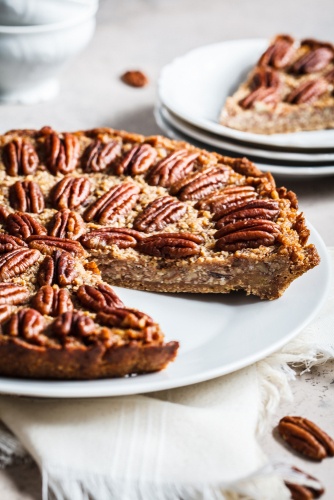
Since the amount of fat in a bread or pastry affects how it will rise, the closest oil substitutes for butter are highly saturated oils, such as coconut or palm oil. The high saturation of fat explains why these oils solidify at lower temperatures than unsaturated oils like olive oil. These highly saturated oils, as well as whipped oils, usually make adequate butter substitutes for any sort of shortening, fudge, and no-bake cookies.
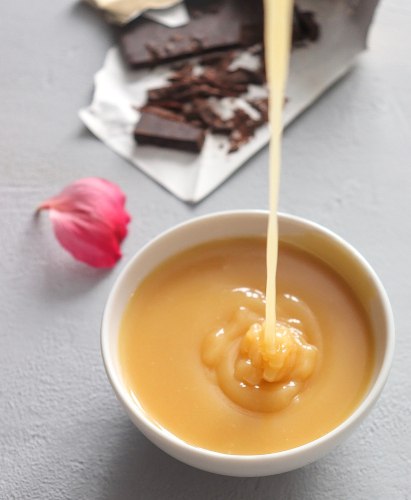
For caramel, it’s best to use highly saturated oils like coconut or palm oil just as you would butter.
However, any recipe that calls for creaming butter with sugar will not work well with oil, mainly because oil will not allow the sugar to caramelize the same way butter would. Not even coconut oil.
When Should I Use Margarine?
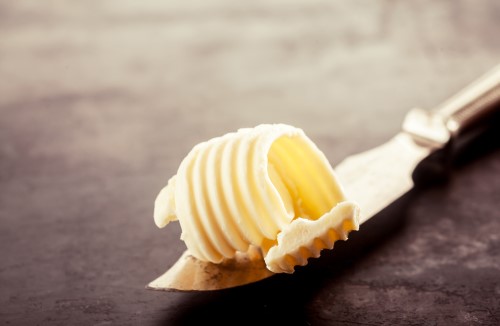
Margarine and many vegan butter substitutes can complicate recipes. Tasting like butter is one thing, but chemically margarine is significantly different than butter, which affects how it can be used in baking. Margarine is usually made by combining refined vegetable oil and water, and when heated it will lose some of the water to steam, which is why using margarine can make baked goods thinner instead of fluffy.
A good rule of thumb is to treat margarine like oil – you can best substitute it for melted butter.
For something that’s meant to be drier and flakier, it’s easiest to stick with butter (no pun intended) but you can make a non-dairy version by substitute coconut oil.
However, it’s really difficult to even use coconut oil as a substitute for butter in flaky pastries and cookies like ladyfingers, croissants, or anything with delicate, flaky layers. Butter helps the layers hold their form, whereas substitutes will leave you with something that’s drier and more brittle. Vegans rest assured, there are plenty of methods to making vegan versions of these baked goods, but shortening or margarine will be a better bet than oil in these instances.
The Verdict: You Don’t Always Have to Stick with Butter
Substituting butter is remarkably simple in most cases, especially in cooking. And it can be fun to experiment with creating gooier interiors of your favorite baked recipes. There are always going to be margins of error in every recipe – you can always look at those margins as opportunities to make the recipe your own. Change the flavor; change the texture; at the end of the day, if it’s made with love, that’s all that matters.


